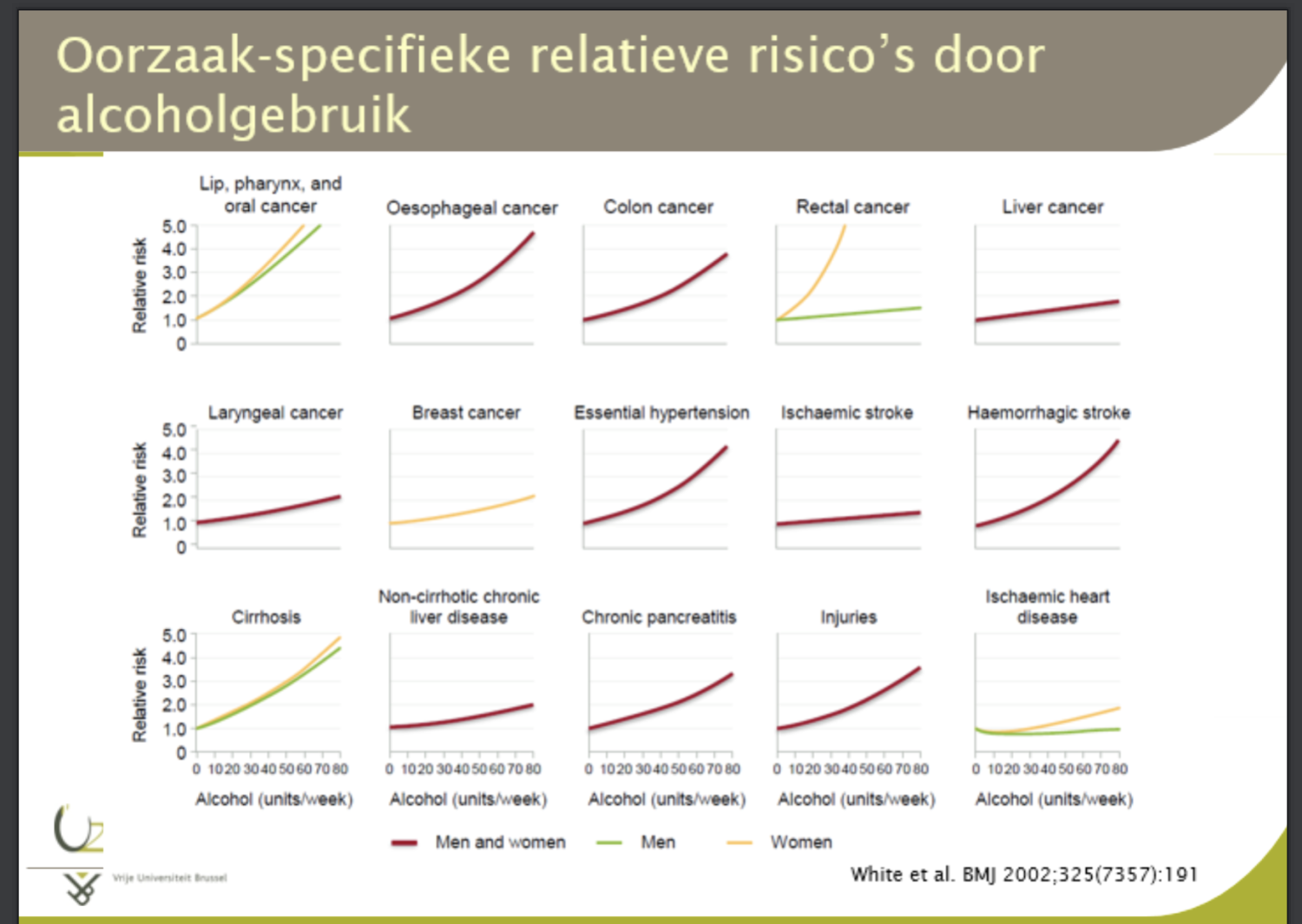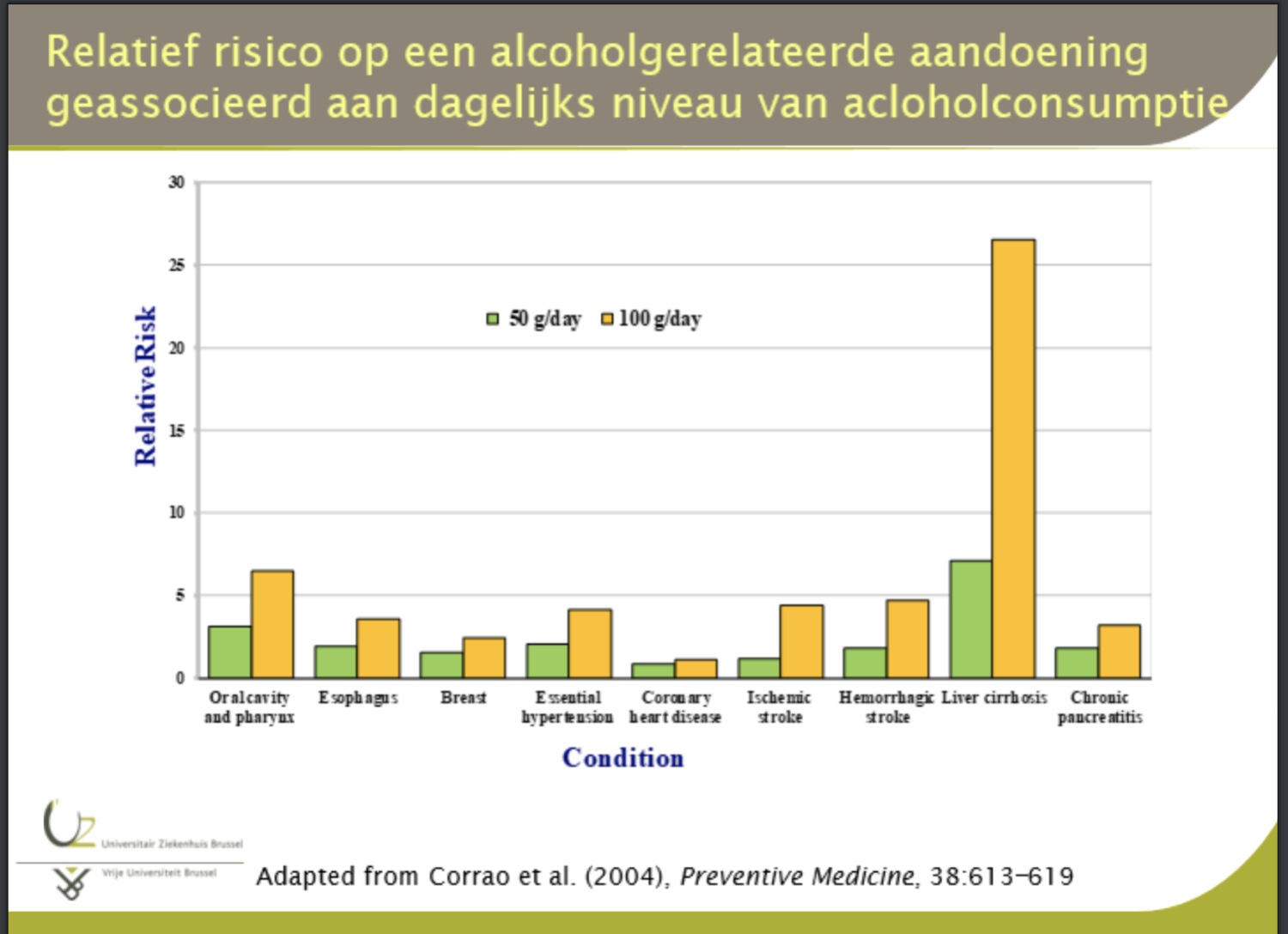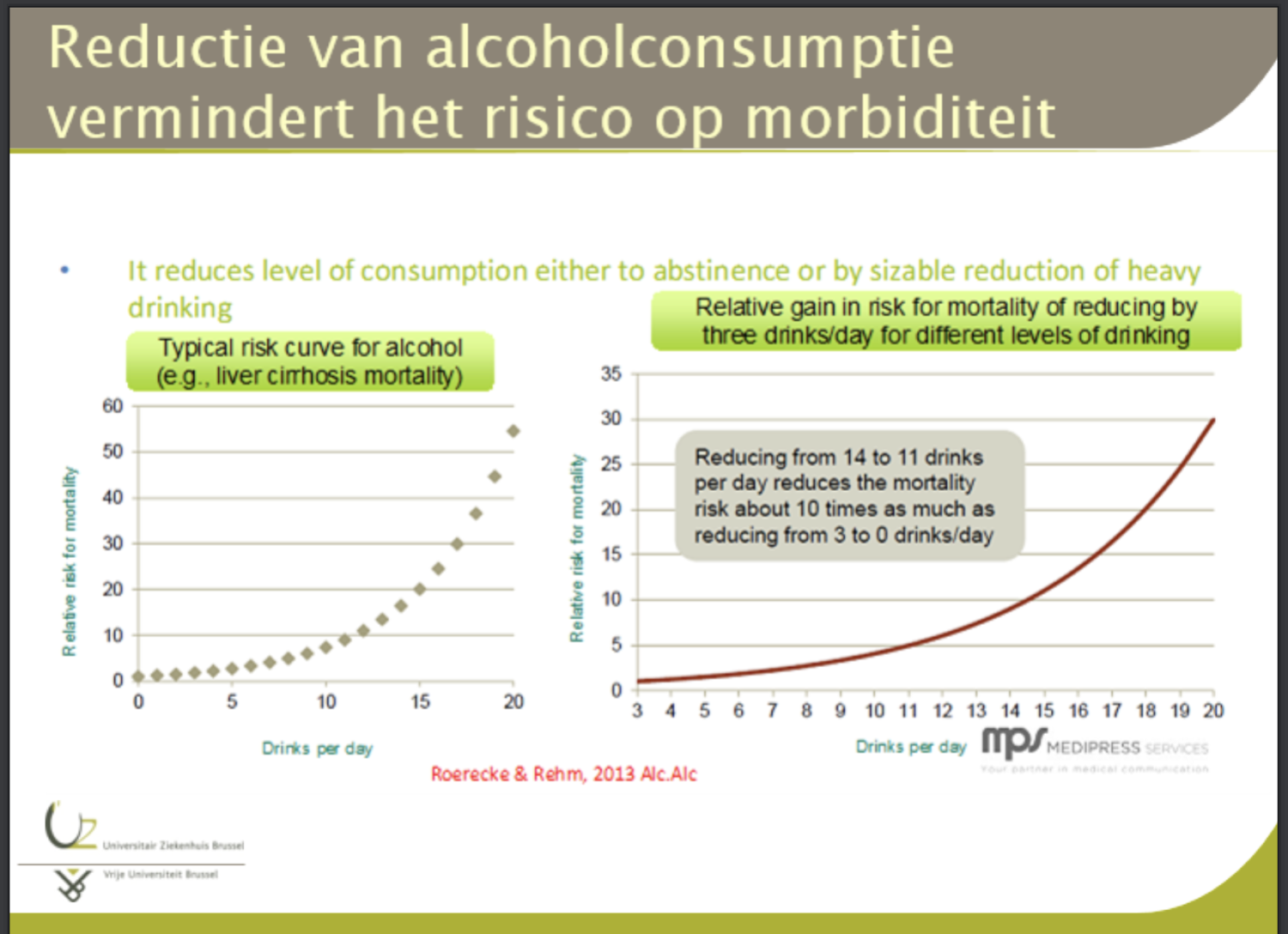
The latest trend to drink less alcohol is so-called zebra drinking, where each glass of alcohol is followed by a glass of water. If this reduces alcohol consumption proportionally, it is a good thing, according to addiction expert VUB professor Frieda Matthys. ‘Usually zebra drinking reduces alcohol consumption a bit. If you halve your consumption, that has clearly demonstrable positive health effects. However, it is a misconception that zebra drinking puts less strain on the liver or that it makes you less drunk if the same amount of alcohol is still consumed in addition to the water. Our liver still has to process the same amount of alcohol. The only positive effect then is that you get more fluids.’
According to Matthys, it is better to drink from as little as possible, but that if you really can't resist completely, you spread out your consumption over time. Better one glass every day than seven glasses on Saturday night and nothing for the rest of the week.
The High Health Council wants a clear statement on all drinks packaging about the number of alcohol units present in a bottle of beer or wine. One alcohol unit is 10 grams of ethanol. According to Frieda Matthys, professor em. of psychiatry and medical psychology at the Vrije Universiteit Brussel (VUB) and former head of psychiatry department at the UZBrussels, this is necessary to give beer and wine drinkers a clear picture of the amount of alcohol they are ingesting when consuming their pint or glass of wine.
‘There are a lot of types of beer these days, sometimes very heavy beers, for which consumers can no longer know exactly how much alcohol they are ingesting when drinking,’ Matthys said. ‘Our liver can barely break down one unit of alcohol every hour and a half; if you then drink a very heavy beer, the effect on your liver function is sometimes very heavy. It is therefore important to clearly inform consumers about the amount of alcohol they actually absorb when they drink.’
Most people know that alcohol is not so good for their health. Hence, after the New Year, they have numerous good intentions to limit their alcohol consumption. The most radical of these is Tournée Mineral, choosing not to consume alcohol for a month in February. ‘Any initiative to drink less is to be welcomed,’ Matthys believes. ‘Alcohol has numerous adverse health effects, chief among them the risk of liver diseases, such as cirrhosis, where scar tissue weakens liver function. But even with moderate consumption, there is an increased risk of cancer, among other things. Most people in our country are unwilling to stop drinking altogether. However, reducing alcohol consumption already has positive health effects as well.’



(Grafieken Frieda Matthys/VUB-UZ Brussel)

